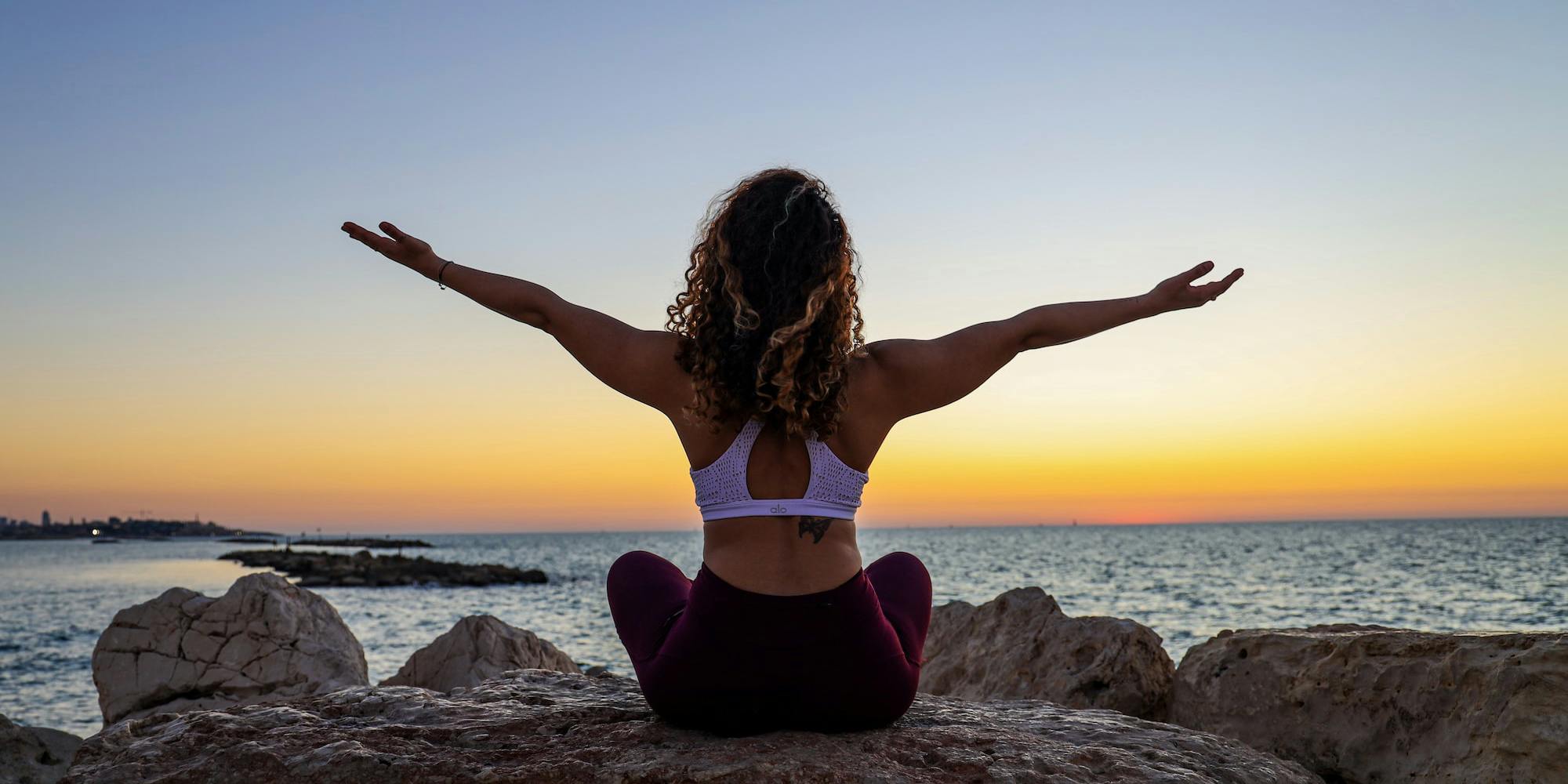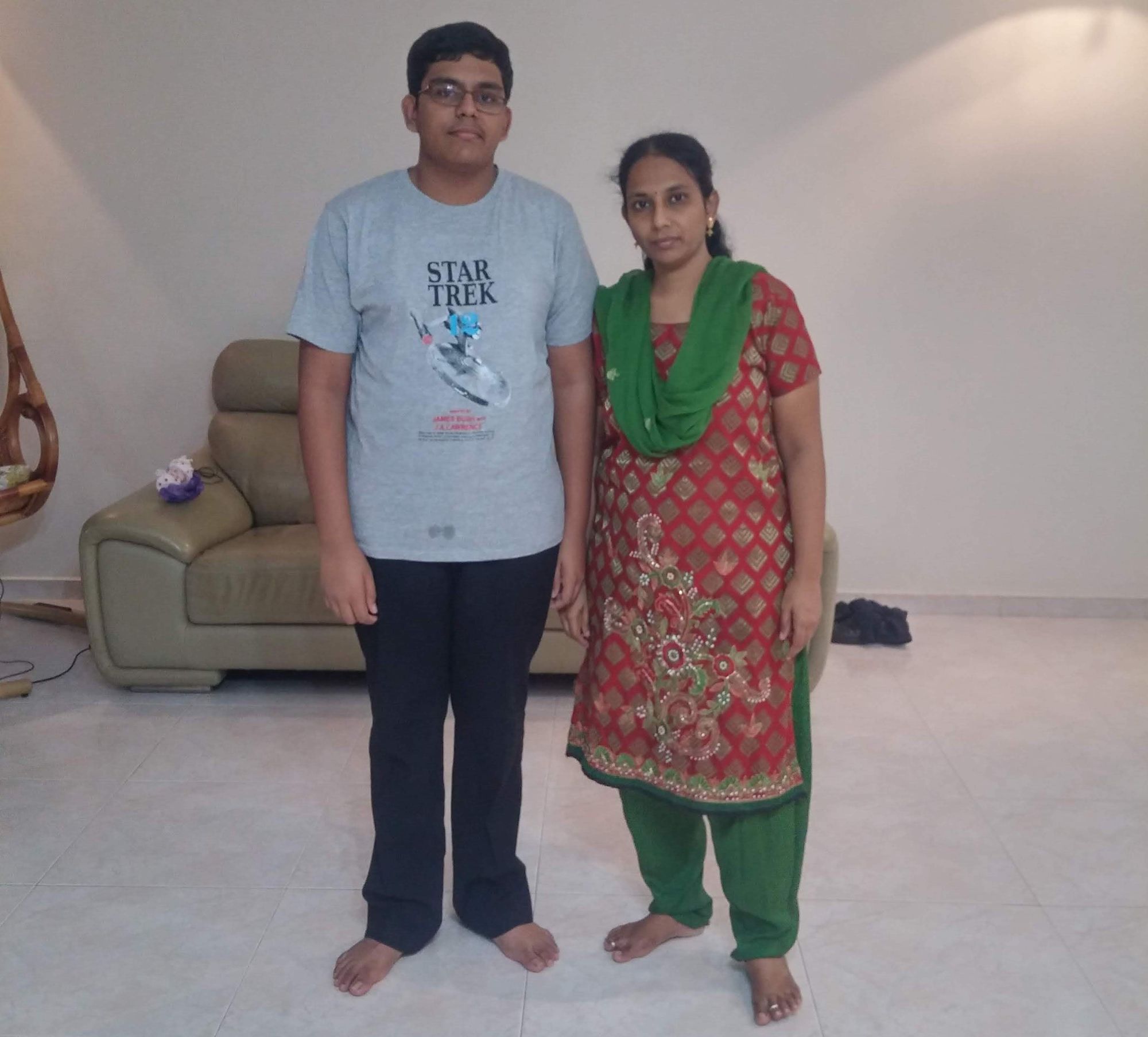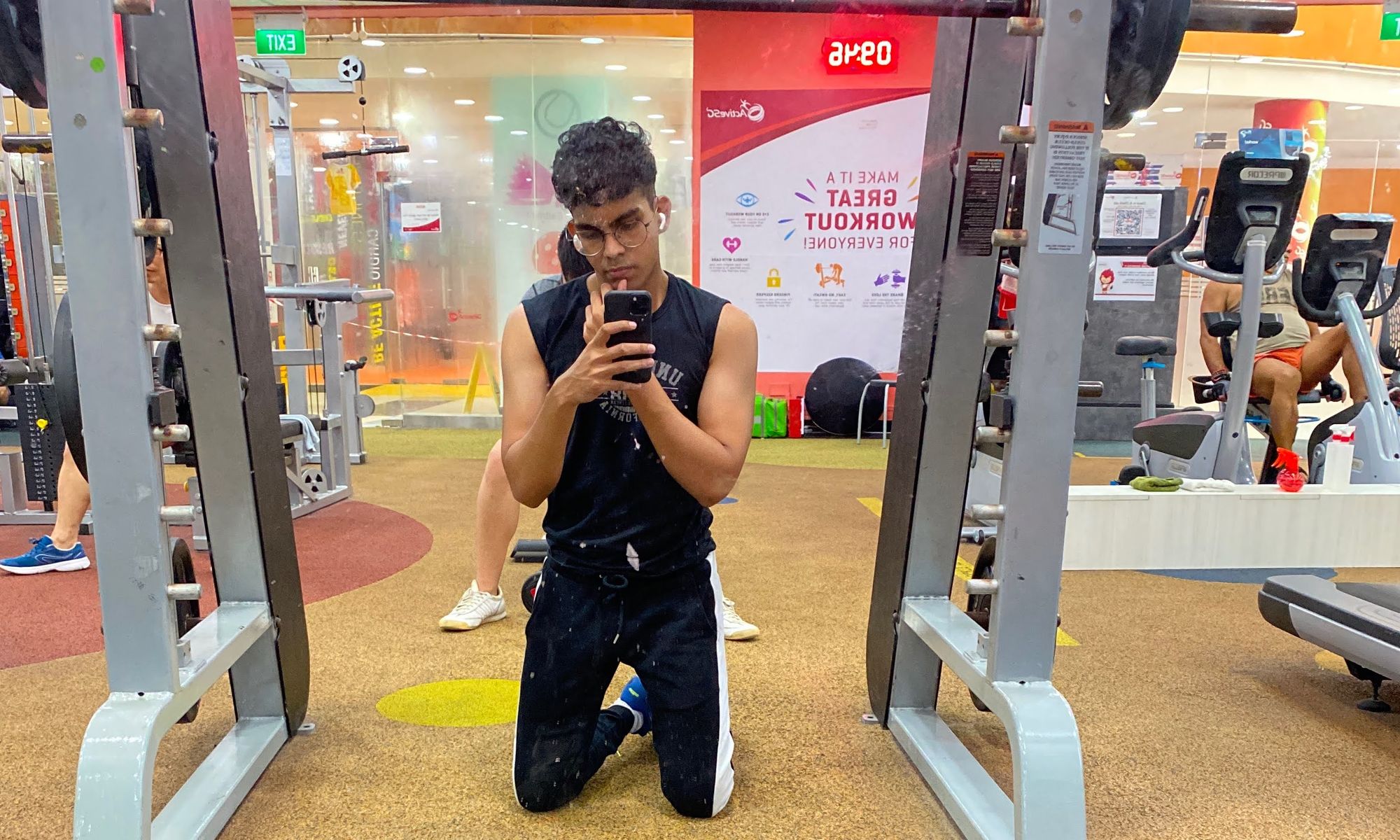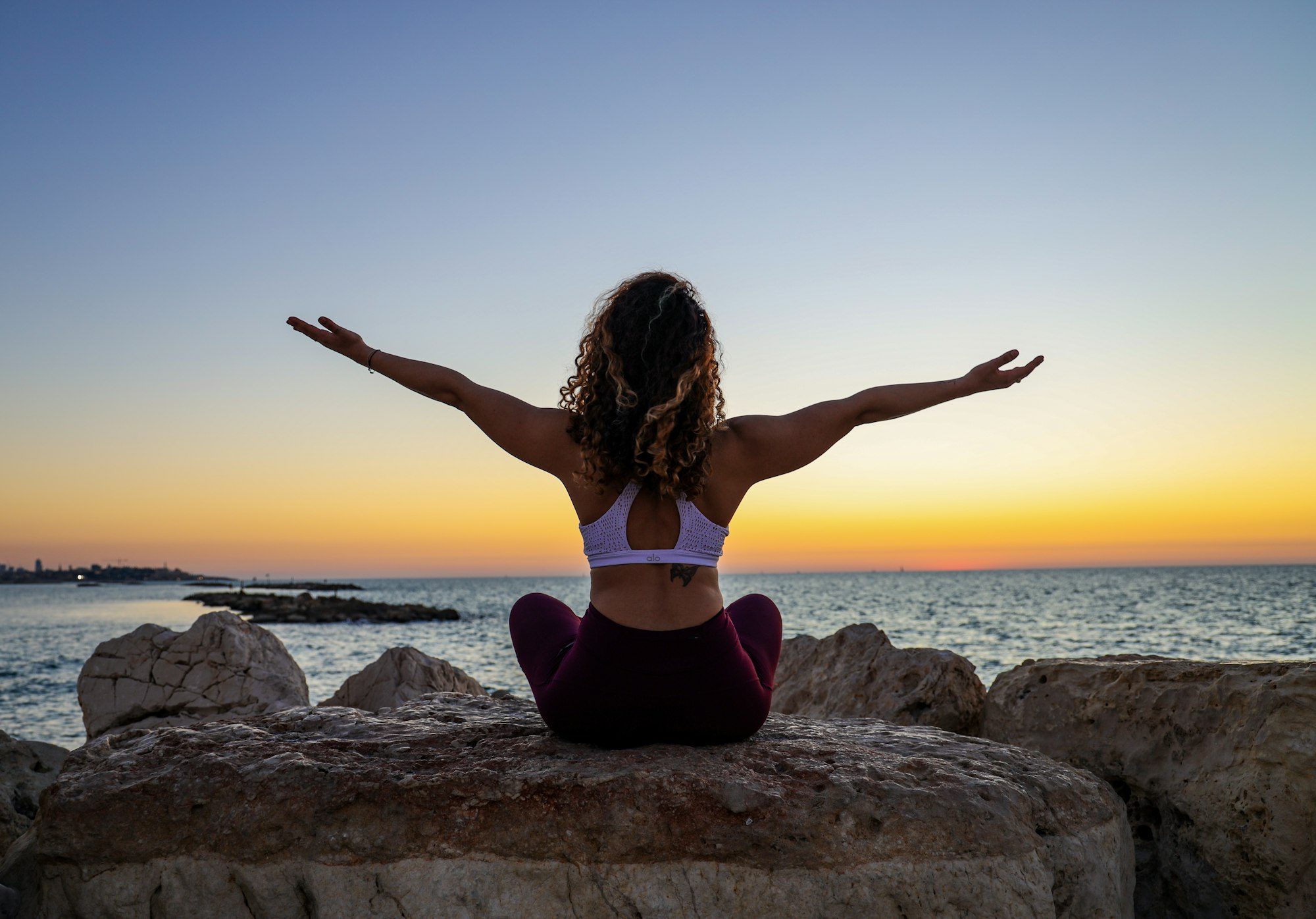Mind, Body, Network
tldr: This article talks about my personal principles for well-being, and the strategies I employ in my daily life to feel healthy, happy and fulfilled.
This post is mirrored on Mirror:

People who have known me since 2016 would know that I have had a hell of a relationship with health and my body. Part of why I am working on a preventive health project at the moment, is that I have struggled with body dysmorphia and health issues for a large part of my life. That's why people who meet me after a long time, often find themselves quite shocked at how much I have changed- both on the outside and on the inside with my perspectives on human well-being.
For reference, this is a photo from when I was 16:

And this is me now at 21:

These days I have much less time, but being aware of my well-being is something I consider essential to my life. This means that over these years, I have had to invent many systems of living which assist in maintaining my sense of well-being. This weekend I found myself reflecting on and reviewing those systems, and I wanted to share them so that people could learn from them and I could gather feedback to improve them.
The principal components of well-being
I hear the phrase "Mind, Body, Soul" thrown around a lot when it comes to human well-being. I am not a big believer in the spiritual soul, I prefer to believe that we are insignificant specks in an infinite uncaring universe. However, one can think about the soul differently, as an intersubjective entity encapsulating fuzzy concepts like purpose, fulfilment and meaning.
Like any intersubjective concept, these originate from society and reside in the collective consciousness of the people you surround yourself with. An example being that, in a capital driven society, purpose might come from wanting to get ahead and climb the socioeconomic ladder. Similarly in a indigenous society, purpose might come from acts of reciprocal gifting to gain the respect and affection of the clan.
I cannot speak for others to determine which modes of soul (intersubjective meaning) they prefer- that is a highly contextualized choice based on personal upbringing and values. Some people retain the values and meaning passed down by their parents, while others choose to rebel and find their own souls. The important thing is that human well-being depends on surrounding yourself with the right people, to obtain the soul you want.
Having said that, my big three for human well-being are:
- The Mind - the pursuit of happiness through knowledge, emotional awareness, gratitude and other means
- The Body - the pursuit of health through the main pillars of sleep, nutrition and movement
- The Network - the pursuit of the soul through surrounding yourself with the right people
Managing the Mind
In 22 years of life, I have truly realized that I am incompetent. I have one interesting idea every week, but give it 2 minutes and I would have forgotten what it was. I deal with conflicts instinctively and fall prey to heuristics such as the peak-end rule and the hot-hand fallacy. I read and learn new concepts only to completely forget them in a couple of months.
You might be one of the people who are more competent in matters of the mind than me, but if you suffer from the same problems as me, the solution lies in systems of thought. This is why I think that Notion is one of the most empowering tools that I use.
Notion enables me to architect and build a digital twin of my brain - a second brain as some people call it. My second brain is built on bits not carbon, and so remembers information in perpetuity. It is able to log connections across data structures and construct knowledge graphs over my thoughts. It also enables me to record and reflect on my emotions which improves my heuristics for dealing with situations on a daily basis.
As of now, the Notion Systems that I use to manage the mind are:
- A Life Journal - this doubles as an event log and a gratitude journal that I write every night
- Media Memory & Readwise - these contain summaries of content to improve memory and link concepts together. I use Readwise to enable automated spaced repetition to further improve knowledge recall.
- Learning - which is an area where I plan and execute learning sprints as per the principles of Ultralearning
- The Neocortex - which is a Notion page where I log random ideas, notes, concepts and brainstorming streams
On top of this, another system I rely on heavily is Getting Things Done by David Allen and Todoist which is how I manage my tasks. The Getting Things Done philosophy emphasizes "mind like water" where if everything important is off the mind and on a recording device then the mind is free to flexibly switch and solve context-dependent problems. If you ever feel like the things that you have to do are weighing down on your mind, Getting Things Done is how I solved that problem for myself.
Building the Body
I am not a health coach - there are many people who are giving great advice on this subject. However, one common problem that I see among my peers is that they have the priorities for their body mixed up. I am going to list the strategies I use to ensure bodily well-being in order of priority.
Sleep
By far, the most important well-being factor for the body is your sleep. Matthew Walker goes into great depth on this subject in his book "Why We Sleep" but without healthy sleep, your fitness, dietary habits, mood stability and almost every physical and cognitive activity will be impaired. That is why, for me, sleep is at the top of my priorities to maintain well-being.
I get 7-8h of sleep everyday, with a regular schedule of 11pm - 7am. On top of that, I use Apple's built in Bedtime tools with a Garmin Venu Sq to manage and monitor my sleep activity. I understand that not everyone might have access to all these tools, but the essential part is to sleep enough and sleep regularly.
Nutrition
The next highest priority for bodily well-being is nutrition. In this, I use mobile tools such as MyFitnessPal to track calories and macros along with a regime of intermittent fasting which has been shown to have impacts on longevity and overall well-being.
Putting it simply, intermittent fasting triggers circuits in the body which prioritizes genetic repair over proliferation. This minimizes epigenetic drift which has been shown to be one of the main drivers of the aging phenotype. Other sources of stress such as cold exposure along with substances like metformin (a diabetes drug) and resveratrol (found in red wine) have also been shown to boost cellular repair in some mammals.
I will not dive into much detail on the mechanisms of these remedies but it is clear that what we eat has a major impact on our well-being and longevity which is why I consider it one of the higher priority areas of concern. For more detail, David Sinclair's Lifespan and the Huberman Lab Podcast are great further references.
Movement
And lastly, but still importantly, is movement. As part of Happily Ever After's collaboration building activities, I have talked to many experts in disciplines across medicine and well-being and they all seem to agree - eat healthy, sleep well and walk 10,000 steps everyday.
Exercise is essential for us to be able to physically do the things we enjoy. It is a form of control, look at some of the calisthenics routines of athletes and you will see how precisely they puppet their body. Some of their feats defy gravity.
To me, human well-being isn't just about being healthy, it's about being able to do everything you want to do. And that means exercising and staying fit. I follow a 3 day full-body workout routine, and have recently started trying to get at least 10,000 steps everyday. This is quite easy in London given how expensive public transport is (oof).
To track the metrics on performance, I highly recommend Hevy for weight routines and I use a Garmin Watch to track general activity and steps.
Assembling the Network
And lastly, this section talks about how I'm building my network to give myself intersubjective meaning. As I discussed earlier, building the network is about finding the right peers to build your purpose and sense of shared meaning. It is about creating an environment of affection.
Humans are social organisms and our well-being is intrinsically connected to those around us. Loneliness is a silent killer but surrounding yourself with the wrong people can be equally bad.
Communities are made of individuals and individuals are made of communities
- Decentralized Society: Finding Web3's Soul
Surrounding yourself with people that you admire and aspire to be like, is the best way to achieve well-being and move towards your goals. Building the network is something that I am still working on, but I have a strategy.
- University Networking - I want to assemble a community that resonates with my #regen beliefs, my position as president of UCL Entrepreneurs is going to be my point of leverage to build that
- Twitter - I believe that the community on twitter is amazing and I would love to engage with more likeminded people there
- DeveloperDAO - I've been a holder of Devs For Revolution since May of this year and I would like to be more active there
- This blog - I enjoy reading and writing about things that I'm passionate about and I hope this blog attracts people who align with me
Through a combination of the above network-building tools, I plan on assembling a community of people around me in search of shared meaning.
As I start to see the importance of networks and intersubjective meaning, I find myself feeling extremely grateful towards Gavin, Ambrose and the extended community at Audacity for helping me build my soul.
Mind, Body, Network
This is where I am right now. This weekend has been a period of recalibration and self-discovery, writing this article is solidifying the reasons for why I monitor my well-being and why I'm building Happily Ever After. It reminds me of why I believe in concepts like the Quantified Self and the idea of trans-humanism.
The world right now seems chaotic and wildly out of control. Amidst all of the climate anxiety, war cries and amplified tribalism is the reality that while dinosaurs were around for 170 million years, the modern human has only been around for 200,000. Many people think this is the end times for humanity, history shows that it might very well be just the beginning.
Trans-humanism is the idea that latent human potential is only starting to be unlocked, and if we've already made it to the moon, imagine how much more we might be on the precipice of achieving.

